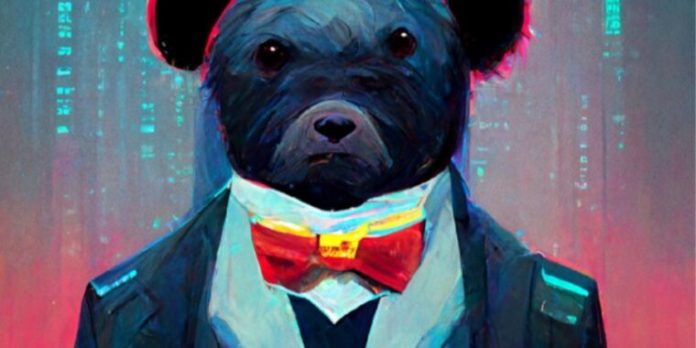Farrar, Straus and Giroux
In November 1988, a graduate pupil at Cornell College named Robert Morris, Jr. inadvertently sparked a nationwide disaster by unleashing a self-replicating laptop worm on a VAX 11/750 laptop within the Massachusetts Institute of Expertise’s Synthetic Intelligence Lab. Morris had no malicious intent; it was merely a scientific experiment to see what number of computer systems he might infect. However he made a grievous error, setting his reinfection charge a lot too excessive. The worm unfold so quickly that it introduced down all the laptop community at Cornell College, crippled these at a number of different universities, and even infiltrated the computer systems at Los Alamos and Livermore Nationwide Laboratories.
Making issues worse, his father was a pc scientist and cryptographer who was the chief scientist on the Nationwide Safety Company’s Nationwide Laptop Safety Heart. Despite the fact that it was unintentional and witnesses testified that Morris did not have “a fraudulent or dishonest bone in his physique,” he was convicted of felonious laptop fraud. The decide was merciful throughout sentencing. Fairly than 15–20 years in jail, Morris acquired three years of probation with neighborhood service and needed to pay a $10,000 high-quality. He went on to discovered Y Combinator together with his longtime pal Paul Graham, amongst different accomplishments.
The “Morris Worm” is only one of 5 hacking instances that Scott Shapiro highlights in his new e book, Fancy Bear Goes Phishing: The Darkish Historical past of the Info Age in 5 Extraordinary Hacks. Shapiro is a authorized thinker at Yale College, however as a baby, his mathematician father—who labored at Bell Labs—sparked an curiosity in computing by bringing residence numerous elements, like microchips, resistors, diodes, LEDs, and breadboards. Their father/son outings included annual attendance on the Institute of Electrical and Electronics Engineers conference in New York Metropolis. Then, a classmate in Shapiro’s highschool biology class launched him to programming on the college’s TRS-80, and Shapiro was hooked. He moved on to engaged on an Apple II and majored in laptop science in faculty however misplaced curiosity afterward and went to regulation faculty as a substitute.
Together with his Yale colleague Oona Hathaway, Shapiro co-authored a e book known as The Internationalists: How a Radical Plan to Outlaw Battle Remade the World, a sweeping historic evaluation of the legal guidelines of struggle that spans from Hugo Grotius, the early seventeenth century father of worldwide regulation, all the best way to 2014. That have raised quite a few questions on the way forward for warfare—particularly, cyberwar and whether or not the identical “guidelines” would apply. The subject appeared like a pure alternative for his subsequent e book, significantly given Shapiro’s background in laptop science and coding.
Regardless of that background, “I actually had no concept what to say about it,” Shapiro instructed Ars. “I simply discovered all of it extraordinarily complicated.” He was then requested to co-teach a particular course, “The Regulation and Expertise of Cyber Battle,” with Hathaway and Yale’s laptop science division. However the equal mixture of regulation college students and laptop science college students attempting to study two very totally different extremely technical fields proved to be a difficult mixture. “It was the worst class I’ve ever taught in my profession,” mentioned Shapiro. “At any given time, half the category was bored and the opposite half was confused. I discovered nothing from it, and nor did any of the scholars.”
That have goaded Shapiro to spend the following few years attempting to crack that individual nut. He brushed up on C, x86 meeting code, and Linux and immersed himself within the historical past of hacking, attaining his first hack on the age of 52. However he additionally approached the difficulty from his discipline of experience. “I am a thinker, so I prefer to go to first ideas,” he mentioned. “However laptop science is just a century outdated, and hacking, or cybersecurity, is possibly a couple of a long time outdated. It is a very younger discipline, and a part of the issue is that individuals have not thought it by from first ideas.” The end result was Fancy Bear Goes Phishing.
The e book is a energetic, partaking learn full of fascinating tales and colourful characters: the notorious Bulgarian hacker often known as Darkish Avenger, whose identification continues to be unknown; Cameron LaCroix, a 16-year-old from south Boston infamous for hacking into Paris Hilton’s Sidekick II in 2005; Paras Jha, a Rutgers pupil who designed the “Mirai botnet”—apparently to get out of a calculus examination—and almost destroyed the Web in 2016 when he hacked Minecraft; and naturally, the titular Fancy Bear hack by Russian army intelligence that was so central to the 2016 presidential election. (Enjoyable truth: Shapiro notes that John von Neumann “constructed a self-reproducing automaton in 1949, a long time earlier than every other hacker… [and] he wrote it with out a pc.”)
However Shapiro additionally brings some penetrating perception into why the Web stays so insecure a long time after its invention, in addition to how and why hackers do what they do. And his conclusion about what could be carried out about it would show a bit controversial: there is no everlasting answer to the cybersecurity drawback. “Cybersecurity shouldn’t be a primarily technological drawback that requires a primarily engineering answer,” Shapiro writes. “It’s a human drawback that requires an understanding of human habits.” That is his mantra all through the e book: “Hacking is about people.” And it portends, for Shapiro, “the dying of ‘solutionism.'”
Ars spoke with Shapiro to study extra.


